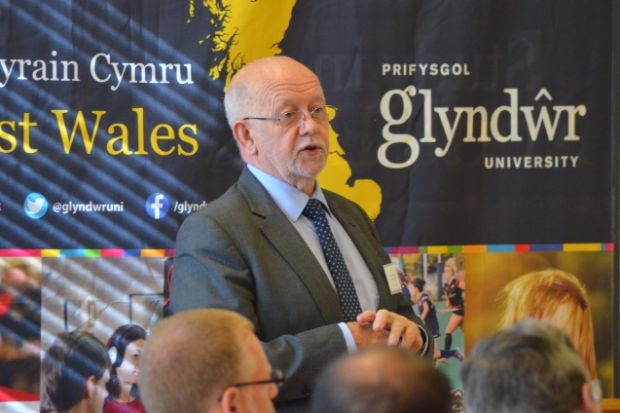The interim vice-chancellor of Glyndwr University, Graham Upton, has revealed his plan to turn around the institution.
A new five-year strategic framework includes a target to double the number of full-time UK and European Union undergraduates at Glyndwr to 5,400, and to increase international student numbers at its main Wrexham campus to at least 10 per cent of the full-time student population.
The document also confirms that PhD programmes will be offered in Wrexham, validated by the University of Chester, with the aim that Glyndwr will be able to secure its own research degree-awarding powers in 2020.
Closer partnerships will be forged with Bangor University and Coleg Cambria, a local further education institution.
There are financial targets too, with a £1.7 million surplus projected for 2015-16 and an increase in turnover to £75 million aimed for the end of the decade.
Professor Upton has been at Glyndwr since January, having been appointed following the sudden departure of Michael Scott.
The university faces financial challenges, having reported a £4 million loss for 2013-14, and its future viability continues to be debated.
But the strategic framework aims to make Glyndwr sustainable as a stand-alone institution, styled as “the university of, and for, North East Wales”.
One thing that the strategy does not mention is a new London campus. Glyndwr was ordered to close its site in the UK capital in November, amid allegations that hundreds of its students held “invalid” or “questionable” English language qualifications.
It continues to be restricted to recruiting a maximum of 100 international students at its Wrexham campus only.
Times Higher Education understands, however, that Glyndwr plans to open a new London campus later this year, under a revised visa sponsorship licence.
Professor Upton, the former vice-chancellor of Oxford Brookes University, said that the key to Glyndwr’s future success would be “working in partnership and putting students at the heart of the university”.
“These are big targets, they are ambitious but we can do it if we work together and help build a new era for Glyndwr University,” he said.
Other targets in the strategic framework include achieving a high percentage of academic staff with doctorates, approaching 100 per cent in some areas, and to increase the proportion of academic staff with professional teaching qualifications or accreditation to 90 per cent, both by 2020.




